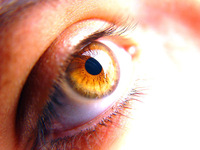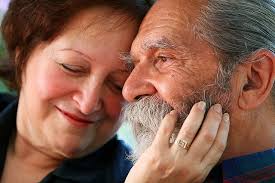
Eating Disorders for the Curious
Posted on March 15, 2017
Several years ago I worked at Swedish/Ballard Medical Center on the Eating Disorders unit. It was a 10 bed psychiatric unit mostly occupied by women struggling with life threatening illness of anorexia and bulimia. It often fell to me to lead the Sunday Night Family Meeting for loved ones of our patients. The patients had lots of meetings throughout the week. This one was held without their presence and was meant to address the concerns and questions about eating disorders for people trying to understand it all. ”After all,” one dad said, “It isn’t as if eating is a hard thing to do, and we have plenty of food. What is wrong with her?”
There is the assumption that people struggling with anorexia and/or bulimia, because yes, you can be both, are into control. It is thought that because they don’t have control in their lives on the outside that they must control what they eat or how much they keep of what they eat, how much they exercise and certainly how much they weigh.
That is only part of the issue. Most of the people I have worked with dealing with eating disorders have had a significant loss or adjustment that turned out to be the last straw. The feelings of rejection, dejection and loneliness or betrayal can be the final step to dealing with emotions for a while.
I’ve often said that eating disorders are not really about food. They are about feelings. For someone who is highly sensitive, compassionate, smart and insecure feelings can be overwhelming. This fits the profile of women who develop eating disorders. Add to that list a desire to be special, to be seen in a very favorable light, who is hard working, overachieving and often at the top of their class in earning good grades and role modeling responsible behavior.
The anorexic woman thrives on self-denial. She has more self-control than most. After all, she can do what most American’s cannot. She can lose weight and keep it off. She can forego food, even food that used to be her favorites. There is a certain kind of high, a secret feeling of superiority that one feels when starving and over exercising. The biggest fear for these women is to gain weight, which means getting fat. Even a pound makes a difference in this game of stepping on the scale. A whole day can be blown by a pound heavier than the day before, the hour before. It doesn’t matter that it is most likely water or digestion. Weight means fat and that is all there is to it.
Many bulimics were anorexic first. They have lost control. They can no longer starve themselves. They often look good, healthy even. They are able to eat in public and carry on a pretend life until they get home, until they are alone or can sneak on opportunity to be alone to binge. To binge is to lose oneself completely. All the troubles, stress and worries of a day disappear in the face of a chocolate cake or a bag or cookies, chips and a gallon of ice cream. That would be the norm for many, but some people consider a binge to be eating a head of lettuce or allowing themselves to eat something on their “do not eat” list.
It can be very confusing for loved ones. There are lots of books out nowadays about eating disorders, recovery and support. The National Association of Eating Disorders is a terrific resource and there are others.
If you love someone with an eating disorder know that there isn’t a lot you can do to change this person’s thoughts, feelings or actions without help. Listen, give them time and understand that recovery is a one-step forward and two steps-back process. It is often painful and quite emotional and yet very much worth it.
From my perspective recovery starts with being able to identify feelings. Noticing your feelings, being able to name them, being aware of when they change, and noticing what happened to change. This is often the first step. Being able to express them is next. That can be done verbally but often it is done through drawing shapes, colors, patterns and designs to put what is going on inside on the outside. I always forewarn my clients that this step can get messy. Having tried to be a “good girl” most of her life, suddenly there is so much anger, frustration and confusion that people cry, yell, sob and swear, talk too loudly or make demands on their loved ones. It’s a messy process to go from working really hard not to feel your feelings to recognizing them to expressing them in a healthy way. It takes time and a lot of practice. This is where patience comes in.
Try to understand that your loved one may feel more deeply, more intensely than most. Many have been molested, emotional and verbally abused while growing up. Trust was something some of them had only for themselves. They couldn’t trust anyone to protect or support them, which leaves a feeling of distain, of being soiled and unlovable.
Each person has their own story. I just know what I see and what I have come to learn. Recovery is definitely possible if the person wants it. I have to wonder about reasons why someone would hang on to their relationship with ED, as eating disorders came to be called, like they are another person. There are reasons for its existence and it will stick around along as it is needed.
Imagine having a strong, negative and cruel voice inside your head at all times. This voice judges your body every time you change your clothes or prepare to step into the shower. It hollers at you to move more, exercise harder and avoid food. Food becomes an enemy. It has calories and will make you fat. If you are fat then you are as worthless and stupid as you could ever be. This voice praises you when you forego eating, when you push food around your plate and stall, hide food or feed it to the dog. This voice is pleased with her and tells you how popular and loved you will be when you lose more and more weight. I once knew a woman who was diagnosed as Schizophrenic by her doctor when she told him she had this voice in her head. It can be crazy making and very powerful.
Try to understand where your loved one is coming from, what they are dealing with. It isn’t rational. It isn’t based on truth. It takes courage, persistence, patience and often a good therapist to help someone overcome the layers of self-abuse involved with eating disorders. There is lots of help available for the asking.
By Colleen Holbrook, MSW, LICSW
SEE ALSO:
More Mental Health Articles
Sexual Bias Articles
Race Relations Articles
How Drugs and Alcohol Affect the Brain and Body
WA. Counselor Directory: find a therapist near you
How helpful is this web page to you?
(and how can we can improve this page for you?)
not helpful
very helpful
Other Articles
What is EMDR? Eye Movement Desensitization and Reprocessing
EMDR, the acronym or abbreviation for Eye Movement Desensitization and Reprocessing, is used to relieve the symptoms of post-traumatic stress disorder (PTSD) and other mental health problems, o... read more
What is PTSD? Cognitive Behavioral Therapy for Post-Traumatic Stress Disorder:
Is There a Successful PTSD Treatment?
You wake from a nightmare sweating or shaking or screaming. Startled by an unexpected sound or touch, you nearly jump out of your skin. You try to shut out feelings about that awful thing that happened to yo... read more
Who is Most Qualified to Treat Sexual Problems?
Sexual issues are addressed by a variety of therapists, but the American Association of Sex Educators, Counselors and Therapists (AASECT) certified sex therapists and counselors are the most quali... read more
What Would an Ethical Counselor Do?
We all believe we are ethical. However, in 1985, I graduated with a masters degree in counseling without ever taking a class in the ethics of counseling. I went out in the world to work as a counselor in sup... read more




